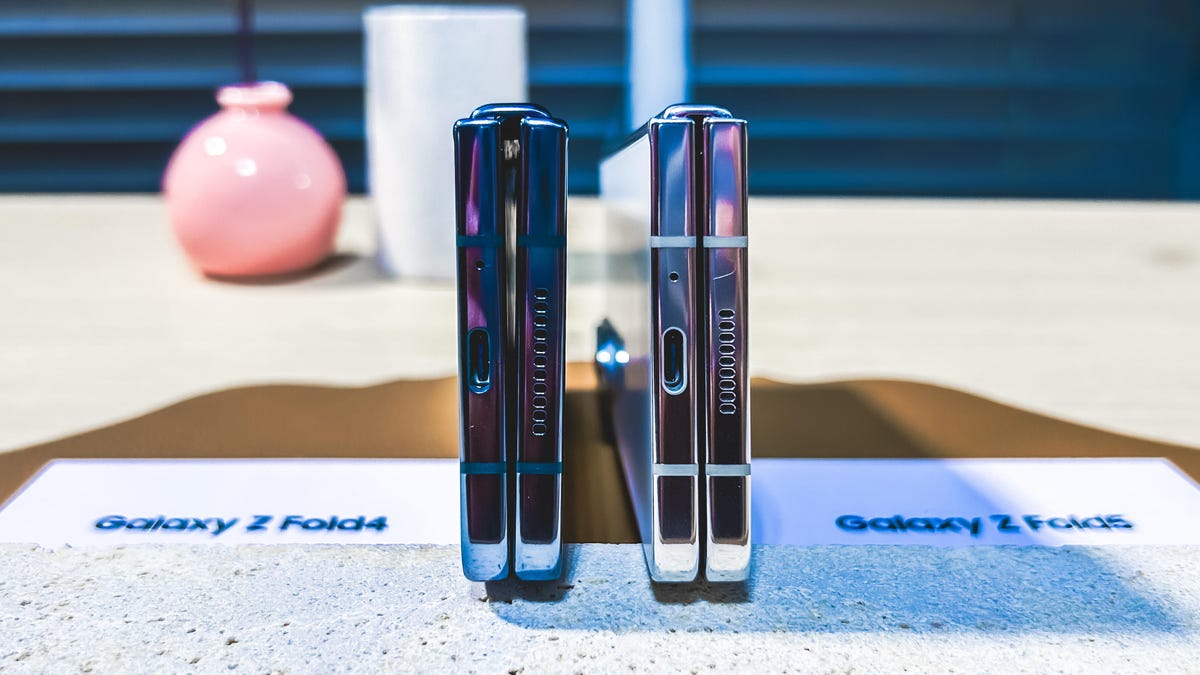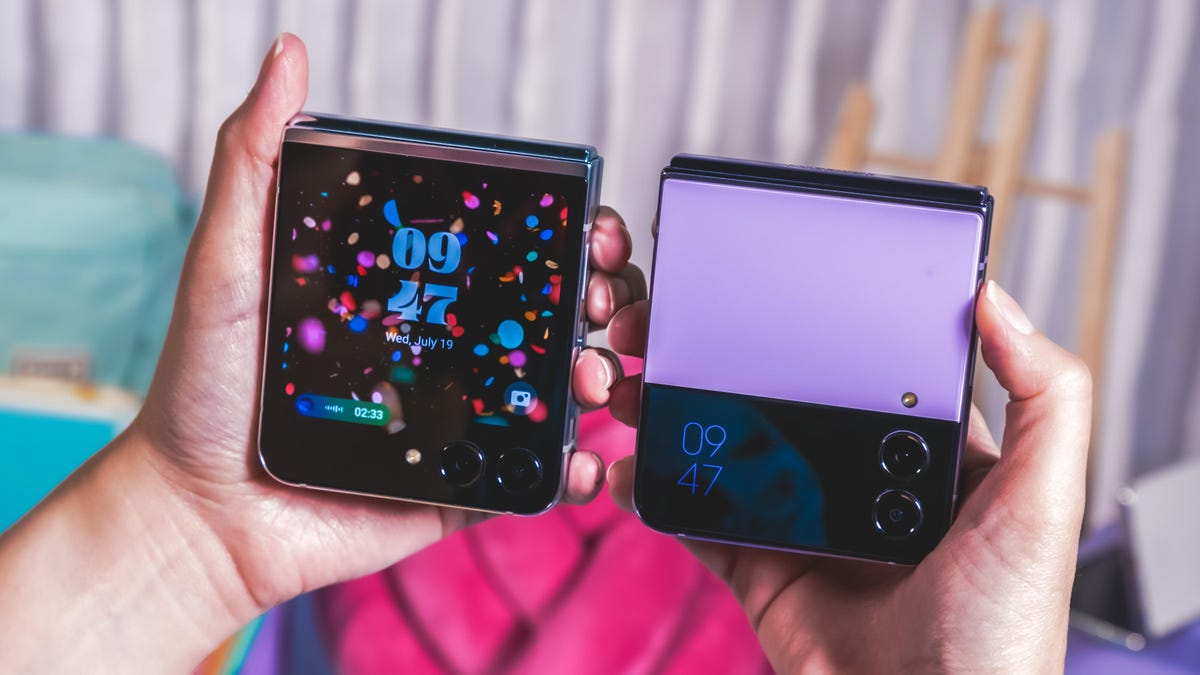Over the last four years, Samsung has been trying to convince consumers that foldable phones are the future. Now, almost half a decade after Samsung launched its first Galaxy Fold device, the company’s mobile chief says sales of foldables could outdo those of its once-popular Galaxy Note.
It would be an important milestone indicating foldables are indeed gaining traction.
“As we speak, they are almost on par,” T.M. Roh, the president and head of Samsung’s mobile experience division, said through a translatorin an interview with CNET at the company’s headquarters in Suwon, South Korea. “And the expectation [is] that with the Flip and Fold 5, we will be able to finally surpass that.”
See also: Samsung Galaxy Z Flip 5 Hands-On: Bigger Display, More Personal Customizations
Shipments of foldable phones still pale in comparison to those of regular smartphones. But the market is growing, with International Data Corporation estimating that worldwide shipments could reach 21.4 million units in 2023. Exceeding Galaxy Note sales would be an important benchmark because it would signal that foldables are inching closer to their breakout moment.
When the Galaxy Note debuted in 2011, it was largely seen as a niche device much like today’s foldables. The Galaxy Note was initially for those willing to pay a high price for a screen that was notably larger than those offered on standard smartphones at the time. But it eventually became a fan favorite and set the stage for Samsung’s more mainstream Galaxy S Ultra series. Not only did it influence Samsung’s own product lineup, but the Galaxy Note ushered in the era of large-screened phones we carry around today.
See also: Galaxy Z Fold 5 Hands-On: Same Phone, New Hinge
With the newly announced Galaxy Z Fold 5 and Galaxy Z Flip 5, Roh hopes foldables will take a similar route and surpass Galaxy Note sales this year. That follows comments from Samsung’s second-quarter earnings call in 2022, during which the company said its goal was to have sales of its foldables overtake those of the Note series. Samsung shipped about 12 million of its most recent Galaxy Note 20 phones, which launched in 2020, according to CNBC, while the company said last July that almost 10 million foldable phones were shipped worldwide.
Samsung established itself as a leader in the nascent but growing foldable phone space early on. But in 2023, it faces more competition than ever. Google released its first foldable phone, the $1,799 Pixel Fold, last month to rival Samsung’s Galaxy Z Fold series. Motorola, meanwhile, launched a new version of its Razr flip phone in June.
While Samsung accounts for most of the foldable phone market share, both of its new devices include physical improvements that were missing from Samsung’s previous-generation foldables, such as a gapless hinge that enables a slimmer design and a larger flip phone cover screen. Samsung has caught up on both fronts with the Galaxy Z Flip 5 and Fold 5, both of which include the company’s new flex hinge.
Roh sees the increased competition as a sign that Samsung was correct in its vision to pursue foldable phones.
“Consumers will always judge which product is better, so I do not believe the competition is negative,” he said. “Rather, I believe that for foldables especially, competition will serve to expand the market and in the end bring even better value to the consumers.”

In addition to the redesigned hinge, Samsung’s new foldables have a more advanced processor that matches those found in the Galaxy S23 series, which should improve performance, battery life and camera quality. But one aspect that hasn’t changed is the price. The Galaxy Z Fold 5, like last year’s device, starts at $1,800, likely putting it out of most consumers’ reach. The Galaxy Z Flip 5 also remains priced at $1,000, although Samsung did add more storage to the cheapest model.
Roh says Samsung has been discussing the challenge of making foldables more accessible by reducing their prices both internally and with its partners. But it remains difficult due to the cost of materials, market demand and other factors.
That’s why Samsung decided to make the products more competitive by improving performance and adding new features at the same price rather than making a more affordable model. Motorola, however, has said that it plans to launch a cheaper version of the Razr Plus later this year.
“And given the materials cost today … it is probably not going to be easy for us to offer a less than $1,000 foldable in the very near future,” Roh said. “But we will keep trying.”
As Samsung works toward cheaper versions of its current foldables, it’s also already thinking about what could be next. At the CES conference in Las Vegas earlier this year, Samsung showed off various concept devices with slidable screens, including the Flex Hybrid tablet concept. When asked when ideas like these would graduate to real products, Roh explained that the company’s philosophy is to wait until both the hardware and software are ready for prime time before introducing new products.
But he did tease that Samsung has a lot more in its pipeline.
“We are preparing many different products and technologies until they are ready to be revealed to the consumers,” he said. “And also aside from the concepts and products that you have seen at CES, there are actually many more concepts and many other designs and technologies that are underway.”
